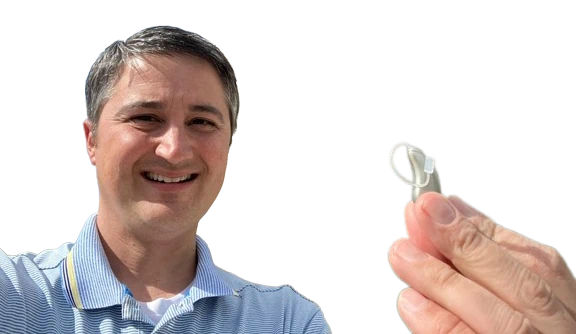Hearing loss is a deeply personal and often misunderstood condition. As an audiologist, I frequently encounter patients who are reluctant to move forward with hearing aids—even when the evidence clearly shows they would benefit. Over time, I’ve learned that hesitation doesn’t stem from a lack of need, but from fear, stigma, misinformation, or previous bad experiences.
Yet, despite these concerns, I still recommend hearing aids. And here’s why.
The Reluctance Is Real: Common Reasons Patients Hesitate
Before diving into the “why” behind my recommendation, let’s first acknowledge the common concerns patients express:
| Hesitation | Patient Perspective |
|---|---|
| “They make me look old” | Worried about appearance or stigma |
| “My hearing isn’t that bad” | Denial or lack of awareness of the degree of hearing loss |
| “They’re too expensive” | Concerns over cost, insurance, and value |
| “I tried them once and hated them” | Frustration with older technology or poor-fitting experiences |
| “I hear, I just don’t understand” | Difficulty with clarity rather than volume |
Each of these concerns is valid. But they don’t change the fundamental truth: untreated hearing loss will affect your quality of life.
Hearing Loss: A Silent Progression With Loud Consequences
Most hearing loss develops gradually, which makes it easy to ignore—until it’s caused real damage. Studies show that untreated hearing loss is associated with:
- Social withdrawal and isolation
- Cognitive decline and dementia
- Increased risk of depression
- Reduced job performance and income
- Higher risk of falls and hospitalizations
🔍 Did You Know?
People with untreated hearing loss are 24% more likely to experience cognitive decline compared to those who wear hearing aids.
Source: Johns Hopkins Medicine
Why I Still Recommend Hearing Aids

Despite hesitation, my role as a clinician is to guide patients to better health outcomes. Here’s why I advocate for hearing aids—even when my patients are unsure:
1. Modern Hearing Aids Are Game Changers
Forget the bulky beige devices from the 90s. Today’s hearing aids are:
- Discreet – Many are nearly invisible.
- Smart – With Bluetooth, app controls, and AI-powered sound processing.
- Tailored – Custom-fit for your ear and calibrated for your exact hearing loss.
- Rechargeable – No more tiny batteries to fumble with.
| Feature | Benefit |
|---|---|
| Bluetooth Connectivity | Stream calls, TV, and music directly to your ears |
| Directional Microphones | Focus on speech, reduce background noise |
| Artificial Intelligence | Automatically adjust to different sound environments |
| Tinnitus Masking Options | Help soothe ringing or buzzing in the ears |
🧠 Pro Tip: The earlier you begin wearing hearing aids, the easier it is for your brain to adjust and make the most of your residual hearing.
2. You Don’t Know What You’re Missing—Until You Hear Again
Many patients don’t realize how much they’re missing. They’ve forgotten the subtle sounds of life: birdsong, footsteps, laughter, rustling leaves.
Once fit with hearing aids, their reaction is often emotional.
“I didn’t know how much I wasn’t hearing until now.”
– A common quote from first-time users.
Restoring sound doesn’t just improve hearing—it reopens a connection to the world.
3. Improved Communication = Stronger Relationships
Hearing loss doesn’t just affect the individual—it affects spouses, children, coworkers, and friends.
| Without Hearing Aids | With Hearing Aids |
|---|---|
| Constant repetition: “What?” or “Say that again” | Clearer conversations and fewer misunderstandings |
| Missed jokes or subtle comments | Shared moments and social engagement |
| Frustration from loved ones | Relief and better connection |
By recommending hearing aids, I’m not just restoring sound—I’m restoring relationships.
4. Early Intervention Preserves Brain Function
The auditory nerve and the brain’s speech centers rely on regular stimulation. Without it, they begin to weaken—a phenomenon known as auditory deprivation.
Delaying treatment makes adaptation harder later. Starting sooner helps:
- Maintain speech understanding
- Keep neural pathways active
- Prevent further cognitive strain
⚠️ Warning: Waiting too long can lead to irreversible loss of word clarity, even if you eventually get hearing aids.
Learn More from the NIH
5. Hearing Aids Are More Accessible Than Ever
Cost is a legitimate barrier—but today, there are more options than ever:
- VA Hearing Aids – Veterans enrolled in VA healthcare may qualify at little or no cost. Learn more here
- Insurance Coverage – Some private or employer plans now cover part or all of the cost.
- Payment Plans & OTC Devices – Flexible options for every budget.
| Option | Approximate Cost | Notes |
|---|---|---|
| Premium Hearing Aids | $3,000 – $7,000/pair | Most advanced features, best for complex environments |
| Mid-Range Aids | $2,000 – $4,000/pair | Balanced value and performance |
| Basic Hearing Aids | $1,000 – $2,000/pair | Good for quiet environments |
| Over-the-Counter Aids | $300 – $1,000/pair | For mild-to-moderate loss; not custom-fitted |
💬 Ask Your Audiologist: We can help you find the best solution within your budget.
My Approach: Support Without Pressure
When I recommend hearing aids, I do so with empathy, not salesmanship. My job isn’t to pressure—it’s to empower. I provide a clear diagnosis, explain the risks of inaction, and walk my patients through their options at their pace.
I’ve seen patients who delayed for 5, 10, even 15 years finally take the leap. Almost every time, they say the same thing:
“I wish I had done this sooner.”
Final Thoughts: Your Hearing Is Worth It
If you’re hesitant about hearing aids, I understand. But please know this:
- Your quality of life matters.
- Your brain needs sound to stay sharp.
- Your relationships are worth preserving.
Don’t let fear or stigma rob you of the life you deserve. I recommend hearing aids because I’ve seen the life-changing difference they make—not just in hearing, but in confidence, connection, and joy.

